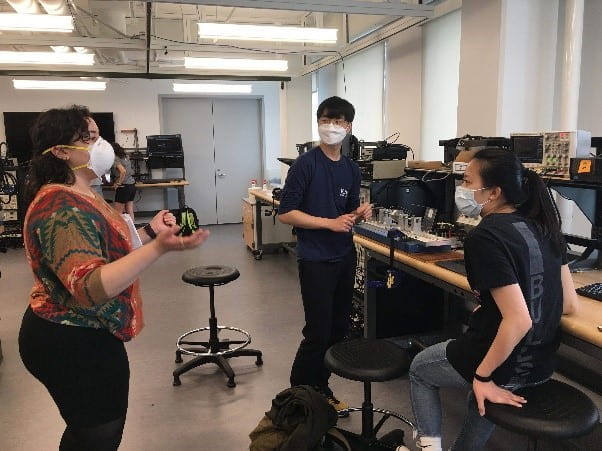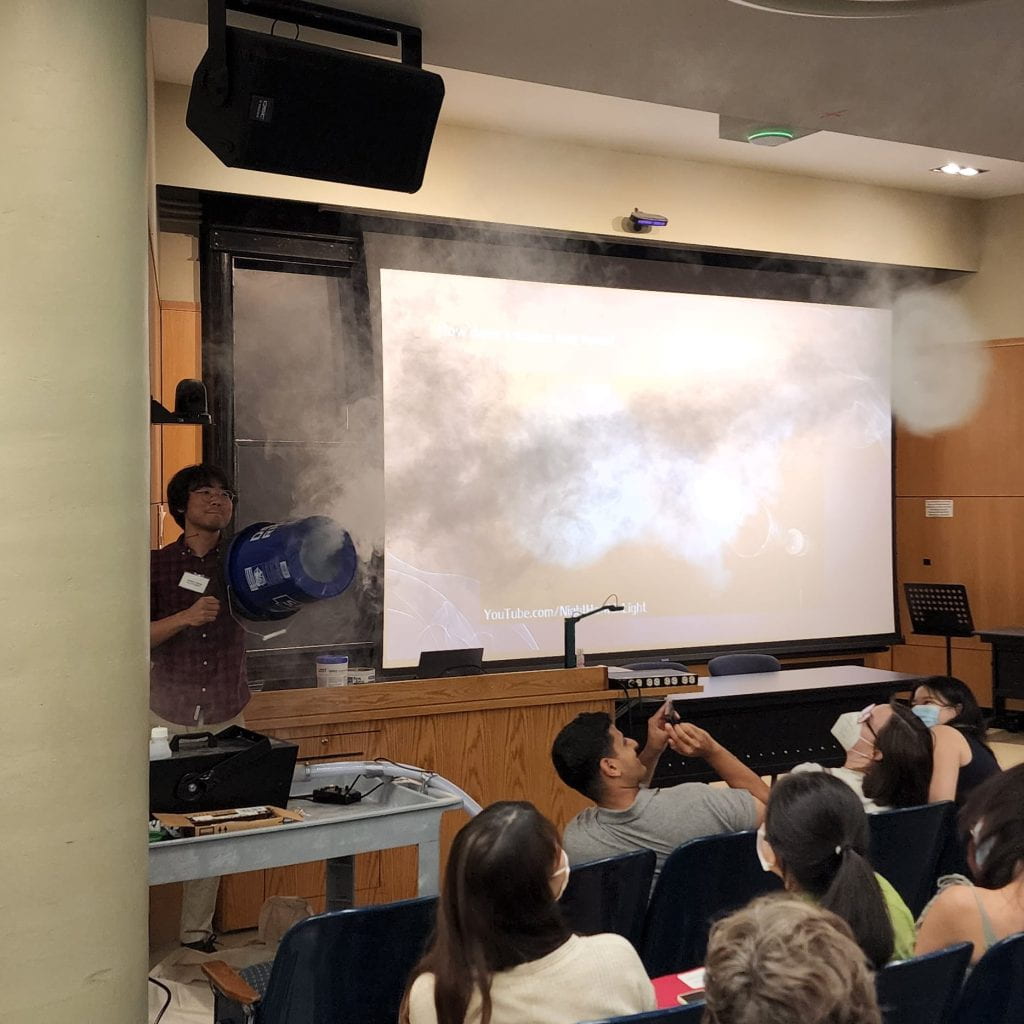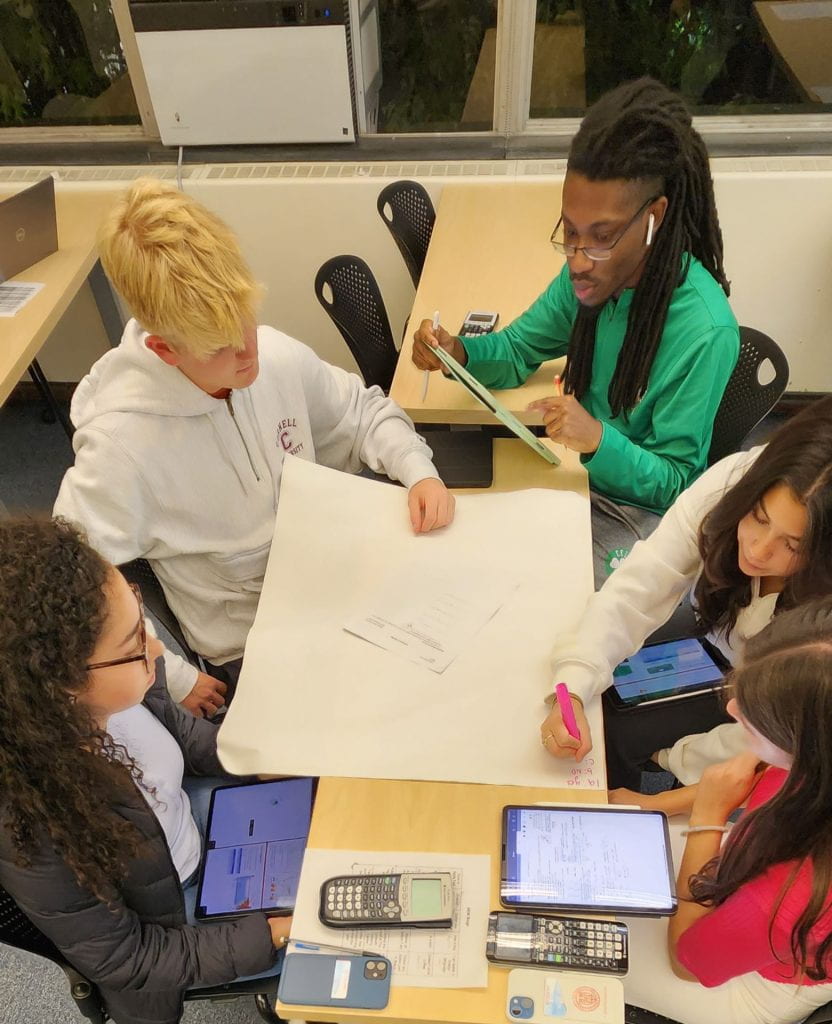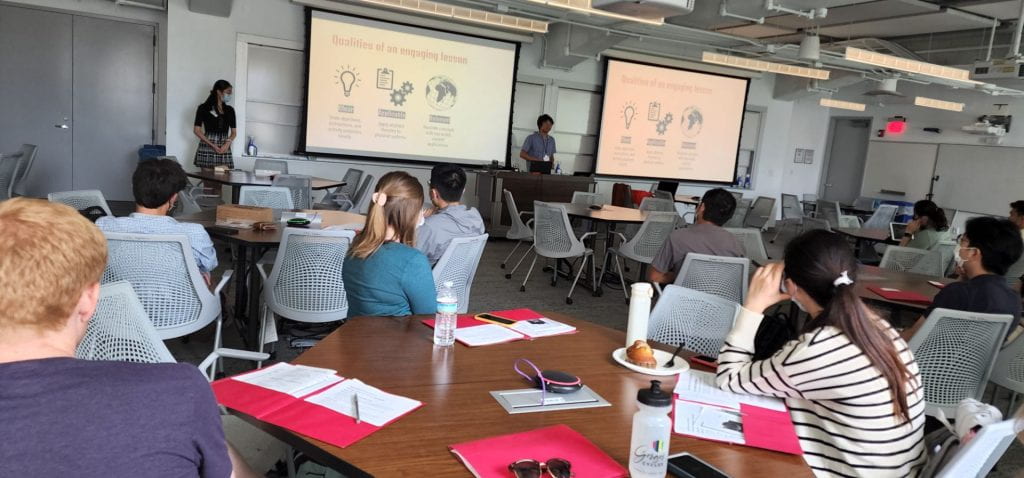Regardless of the path you take after attaining your degree, the skills you gain by working on a teaching team will be valuable in your professional career! The knowledge and skills that support effective learning are the same as those that result in the best work environments and business outcomes. Being a teaching assistant (TA) is an excellent way to gain and strengthen both your technical and non-technical skill sets.

Professional skills for engineering career success – room for growth!
Historically (and still today) these professional skills have often been referred to as ‘soft’ skills. This term originated in the U.S. military, and was used to differentiate a certain set of interpersonal skills from more knowledge-based skills associated with specifics of a professional role (‘hard’ skills). As we start to recognize critical importance of these interpersonal skills in successful engineering tasks, careers, products, processes and outcomes, many people are beginning to refer to this skill set as ‘professional’ skills. We use that language here.
Five hundred companies and organizations participated in a study where they rated the importance and proficiency of their recent entry-level engineers for 26 identified ‘professional’ skills. These skills include the type of work a teaching assistant (TA) does and can learn about through the act of using evidence-supported strategies and working to support student learning. Here is a list of some of those skills: communication, organization, team work, creativity, social skills, critical thinking, interpersonal communication, adaptability, punctuality, friendly personality, critical thinking and more (Hirudayaraj, et al. 2021).
“The findings suggest that although entry-level engineers have proficiency in all of these ABET required skills, the entry-level engineers were not meeting the level of importance expressed by the organization for 24 of these 26 skills.”
Green (2023) recently surveyed perceptions of faculty, students and engineering employers for 8 professional skills (collaboration, communication, ethical considerations, inclusivity, leadership, professional judgment, task management, and teamwork) exhibited by engineering students .
“Statistical analysis on survey data indicated that how students rate their peers’ abilities aligns with the perceptions that practicing engineers have of student abilities with both groups’ means for each skill being [significantly] lower than how the students rated their own ability”
The conclusion from these (and other) studies is that there is a need for graduating engineers to improve these skills. Teaching, and TA training, are one of the best opportunities to do that in a higher education environment.
The value of teaching and TA training to develop technical and professional skills

Teaching others means you learn it better, get new perspectives, and solidify your knowledge-base. Even long-term memories can fade over time, and your practice helps to lock in less used ideas (that might be useful to remember in the future).
The best evidence-supported teaching practices are grounded in inclusivity, engagement, collaboration, reflection, perspective sharing, and leadership. Working as part of a teaching team in a college course requires the ability to listen, include, create an engaging and purposeful environment, give and take feedback, and work on a team toward common goals. Doing this consciously and mindfully and with the intention of developing these skills is leadership. If there is the opportunity to take advantage of some pedagogy training to get you started, it will provide tools and help develop the confidence to try them and to grow these professional skills.
 While teaching is not the only way to build these important skills, it is likely to be the situation in which you will have the most opportunity to practice, evaluate, try again, or try something new. Teamwork is hard. People are complex, and our own biases and perceptions often blind us to other ways – maybe better ways – to approach or solve a challenge. Growing these skills takes practice, and teaching for a semester or a few semesters is an excellent way to do this as a graduate student. Being a TA is a win/win. Your practice will help engineers coming up under you AND improve your the quality of your team’s work and increase opportunities to advance in your career.
While teaching is not the only way to build these important skills, it is likely to be the situation in which you will have the most opportunity to practice, evaluate, try again, or try something new. Teamwork is hard. People are complex, and our own biases and perceptions often blind us to other ways – maybe better ways – to approach or solve a challenge. Growing these skills takes practice, and teaching for a semester or a few semesters is an excellent way to do this as a graduate student. Being a TA is a win/win. Your practice will help engineers coming up under you AND improve your the quality of your team’s work and increase opportunities to advance in your career.
Group projects in design courses, particularly when well structured by the instructor, are great opportunities to grow teamwork, communication, and collaboration skills. Other co-curricular activities like mentoring undergraduates in a lab can also build important professional skills – again, particularly when guided by a few basic evidence-supported practices that take into account how people learn, become engaged and feel like they belong. Facilitating communication with colleagues is the key to learning and leading.
“Gone are the days of sitting at a cubicle, and minding your own business. This is the digital age, and communication skills reign supreme.”
https://www.engineering.com/story/5-skills-hiring-managers-look-for-in-engineering-grads

Just a couple more reasons to consider being a teaching assistant
Your work supporting others with shared passion for the work of engineering is so important. Learning from peers and those closer in experience (than professors) opens up possibilities for empathy that become harder and harder to access with growing expertise and cognitive intuition. Learning how to support other humans in distress or create an environment in which everyone can learn and/or contribute is a skill that comes with practice and is strongly related to being a leader of people in your field.
Your expertise in a field will only take you so far if your ability to manage programs and people, communicate, collaborate and share ideas in ways that make sense to different audiences is lacking. Being a TA is a valuable resume builder when you can talk about how you learned to manage people, facilitate discussions on challenging topics, actively listen and use questioning strategies to prime critical thinking. These are skills you need and can sell!
Embrace it!